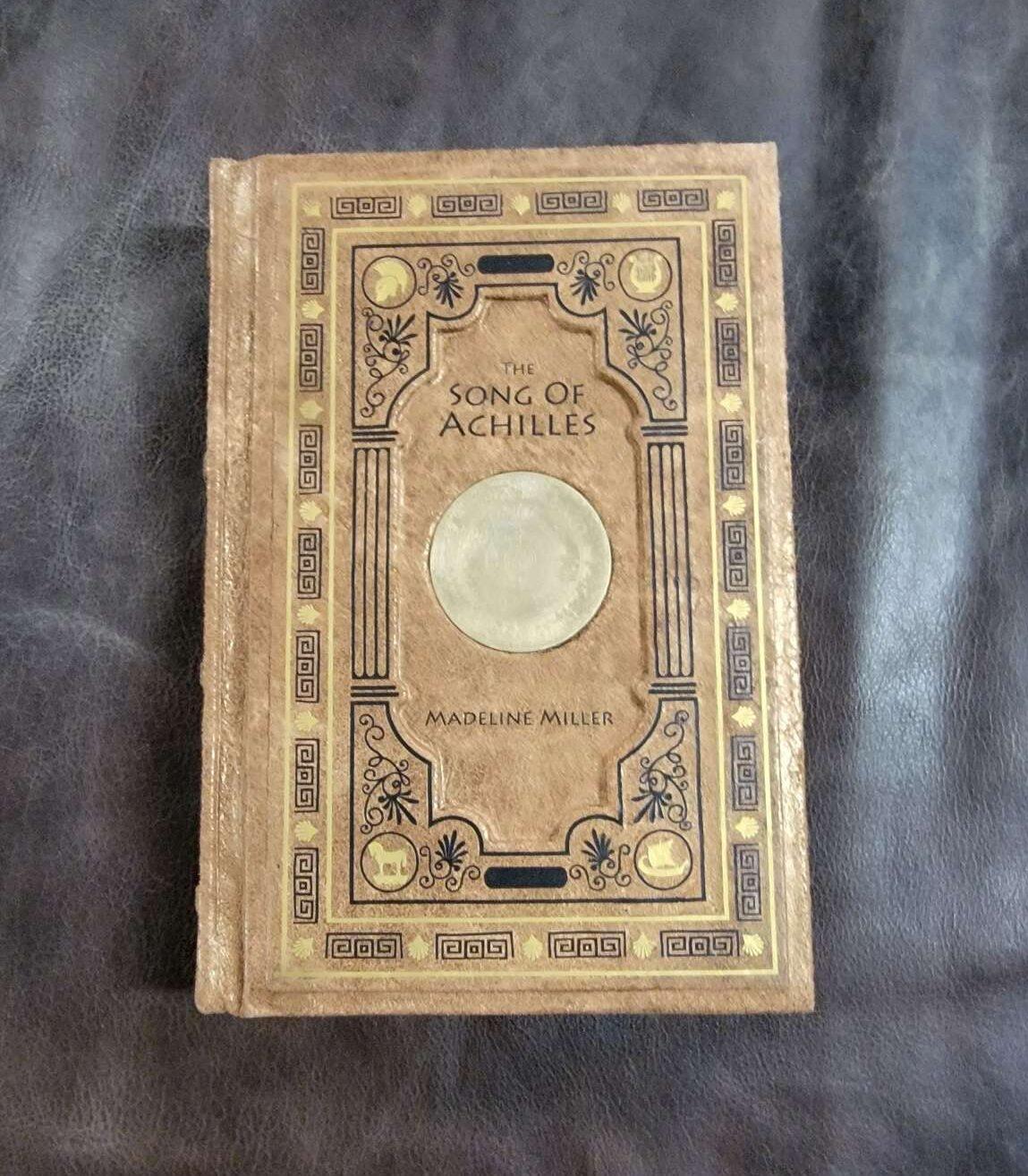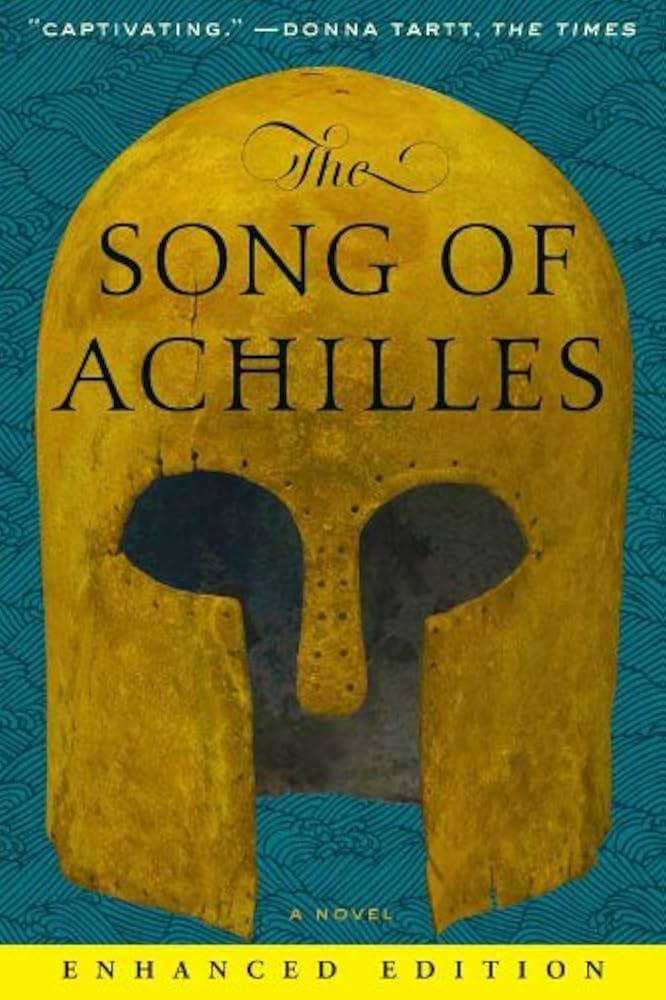In the realm of contemporary literature, few works have managed to capture the essence of ancient myth with the emotional depth and narrative sophistication of Madeline Miller‘s “The Song of Achilles.” This novel, a reimagining of the legendary tale of Achilles and Patroclus, transcends traditional boundaries of historical fiction by weaving a poignant exploration of love, honor, and destiny. Through meticulous research and a profound understanding of classical mythology, Miller breathes new life into these iconic figures, offering readers an intimate portrayal that resonates with timeless themes of human connection and the complexities of fate. This article delves into the reasons why “The Song of Achilles” stands as an epic retelling of love, examining its narrative structure, character development, and the broader implications of its reinterpretation of ancient lore. By analyzing the novel’s unique approach to storytelling, we uncover how Miller’s work not only revitalizes a classic story but also invites readers to reflect on the enduring power of love amidst the backdrop of epic history.
Exploring the Rich Narrative Structure and Emotional Depth
The narrative structure of The Song of Achilles is crafted with meticulous attention, weaving together threads of mythology, romance, and tragedy to create a tapestry that resonates deeply with readers. Madeline Miller employs a first-person perspective through the eyes of Patroclus, a choice that offers an intimate glimpse into his evolving relationship with Achilles. This perspective invites readers to witness their shared journey, from their childhood bond to the profound love that grows between them. By doing so, Miller doesn’t merely retell the ancient myth; she breathes new life into it, allowing for a deeper exploration of themes such as destiny, honor, and the inevitability of fate.
- Character Development: The characters are intricately developed, with Achilles portrayed not just as a legendary hero but as a complex individual grappling with his identity and destiny.
- Emotional Depth: The emotional landscape is rich and varied, capturing moments of tenderness, jealousy, and profound sorrow.
- Symbolism and Themes: The novel delves into timeless themes of love, sacrifice, and the human condition, resonating with readers on multiple levels.
Through these narrative choices, Miller transcends the boundaries of a traditional retelling, offering a fresh and emotionally resonant interpretation of the epic tale. The depth of emotion and the intricacies of the narrative structure elevate The Song of Achilles to a work that is both timeless and profoundly moving.

Character Development and Its Impact on the Storytelling Experience
In Madeline Miller’s The Song of Achilles, the nuanced evolution of its characters, particularly Achilles and Patroclus, plays a pivotal role in enhancing the storytelling experience. The novel meticulously explores their transformation from childhood companions to deeply connected lovers, weaving a rich tapestry of emotion and complexity. This dynamic progression not only deepens the reader’s engagement but also highlights the multifaceted nature of heroism and vulnerability.
- Patroclus: His journey from a marginalized figure to a central character is profound. As the narrator, his perspective offers an intimate view of Achilles, revealing layers of tenderness and internal conflict.
- Achilles: His character development is intricately tied to his understanding of destiny and personal choice, portraying a hero who is both revered and deeply human.
Through these character arcs, Miller crafts a narrative that transcends the traditional epic, offering a fresh lens on familiar mythology. The characters’ development serves as the heartbeat of the story, driving the plot forward while inviting readers to explore themes of love, sacrifice, and the timeless struggle between fate and free will.

The Role of Mythology in Enhancing the Love Story
In Madeline Miller’s The Song of Achilles, mythology serves as a rich tapestry that intricately weaves the love story between Achilles and Patroclus. The ancient myths not only provide a backdrop but also enhance the emotional depth and complexity of their relationship. Through the lens of mythology, their love is elevated from a mere romantic connection to a timeless saga that echoes the grandeur of legendary tales. The gods and goddesses, with their capricious interventions, become more than mere characters; they are symbolic of the societal pressures and existential challenges that the protagonists must navigate. This mythological context allows readers to explore themes of fate, honor, and mortality, offering a profound understanding of the sacrifices and triumphs inherent in their bond.
- Fate and Destiny: The inevitability of Achilles’ fate adds a poignant layer to his relationship with Patroclus, illustrating the tension between love and destiny.
- Heroic Archetypes: By drawing on heroic figures from Greek mythology, Miller frames their love as a narrative of epic proportions, transcending the personal to become universal.
- Divine Influence: The whims of the gods serve as a metaphor for the unpredictable nature of love and the external forces that can shape relationships.
This mythological framework not only enriches the narrative but also invites readers to ponder the timeless nature of love stories, as they are retold and reimagined across generations. In this way, mythology is not just a setting but a powerful tool that amplifies the emotional and thematic resonance of the novel.

Analyzing the Language and Style for a Modern Audience
Madeline Miller’s The Song of Achilles masterfully reimagines ancient myth for a modern audience through its accessible yet poetic language and compelling narrative style. Miller employs a first-person perspective that breathes life into the character of Patroclus, making him more than just a footnote in Achilles’ legendary story. This choice allows readers to experience the world of Greek heroes and gods through a personal and intimate lens, emphasizing emotional depth over epic grandeur. The prose is lyrical and evocative, with descriptions that are vivid yet concise, striking a balance that keeps the narrative both engaging and profound.
In adapting Homeric epics for today’s readers, Miller’s style achieves a remarkable synthesis of ancient and contemporary elements. Her language choices reflect a keen understanding of her audience’s preferences, using modern diction while retaining the essence of classical storytelling. The dialogue is natural and relatable, often infusing humor and tenderness, which humanizes the larger-than-life characters. Additionally, the novel explores themes such as:
- Love and loyalty – Central to the narrative, presented with nuance and sensitivity.
- Identity and destiny – Explored through Patroclus’s internal struggles and growth.
- War and heroism – Examined critically, with a focus on the personal costs of glory.
Through this thoughtful blend of language and style, Miller not only retells a classic tale but also invites a new generation to find relevance and resonance in these timeless themes.
To Conclude
“The Song of Achilles” by Madeline Miller stands as a compelling retelling of ancient myth, skillfully intertwining themes of love, destiny, and heroism. Through its nuanced character development and vivid prose, the novel transcends the boundaries of a traditional retelling, offering readers a profound exploration of human emotion and the complexities of relationships. By reimagining the legendary bond between Achilles and Patroclus, Miller not only revives an age-old story but also invites a contemporary audience to reflect on timeless themes of love and sacrifice. This epic narrative resonates with readers by bridging the past and present, ultimately affirming the enduring power of love in its many forms. As we turn the final page, we are left with a deeper understanding of the intricacies of the human heart and the timeless allure of mythological storytelling.
